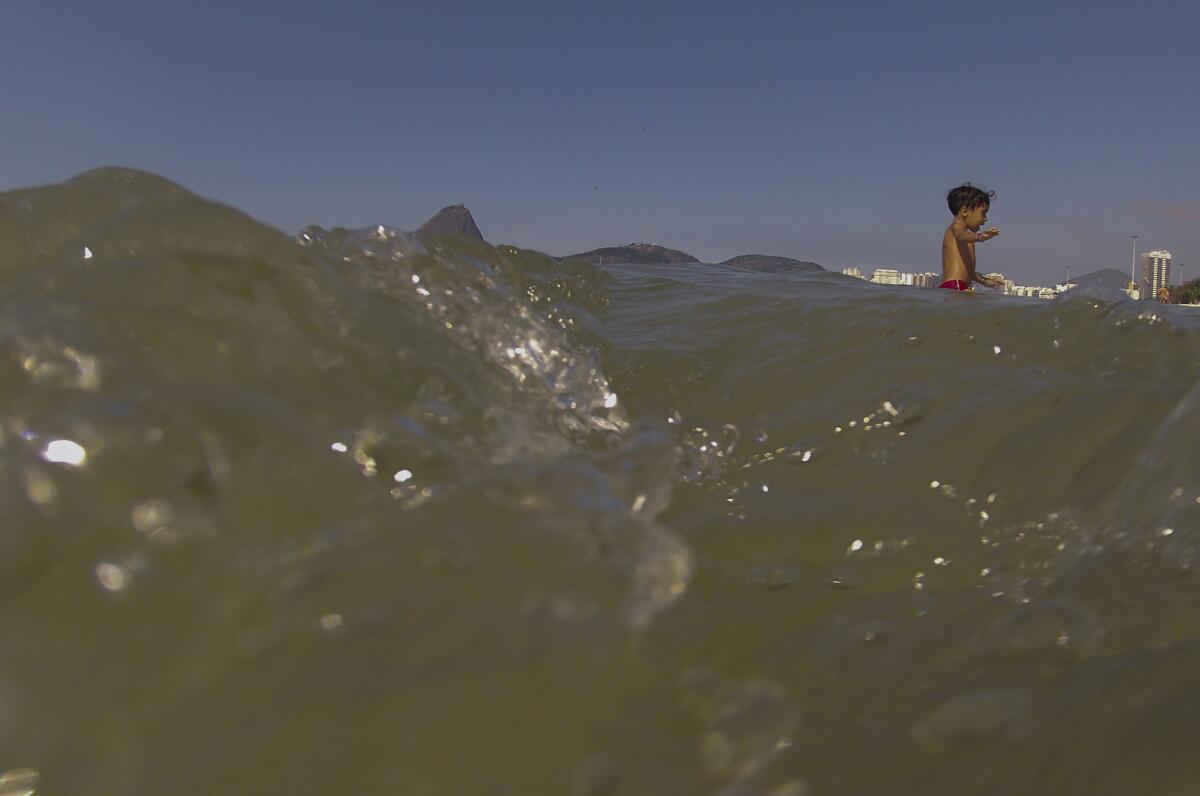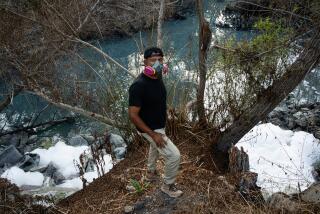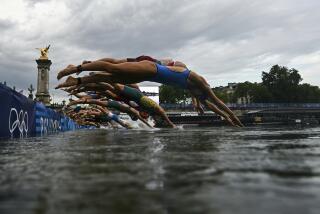Water pollution at 2016 Summer Olympics remains a concern

A boy wades in the beach waters of Flamengo, in Rio de Janeiro, Brazil. The Rio Olympic organizing committee’s website states that a key legacy of the games will be ‘the rehabilitation and protection of the area’s environment, particularly its bays and canals” in areas where water sports will take place.
- Share via
Amid continuing worry about pollution at open-water sites for the 2016 Rio de Janeiro Olympics, a new study shows swimmers and boaters could face serious health risks.
The venues where numerous events will take place are tainted with human sewage, according to tests conducted over five months by the Associated Press.
The situation remains a concern to the International Olympic Committee.
“On the one hand we see great progress, on the other there is no time to lose,” IOC President Thomas Bach told reporters this week.
Earlier this year, Brazilian officials acknowledged they would fall short of their goal to greatly decrease pollution in Guanabara Bay, where sailors and windsurfers will compete.
Bach expressed hope for improvement, saying, “Given the fact that the organizing committee has acknowledged its challenges, we are very confident we will have a great Games in one year because acknowledging challenges is the first and most important step to overcoming them.”
More to Read
Go beyond the scoreboard
Get the latest on L.A.'s teams in the daily Sports Report newsletter.
You may occasionally receive promotional content from the Los Angeles Times.











